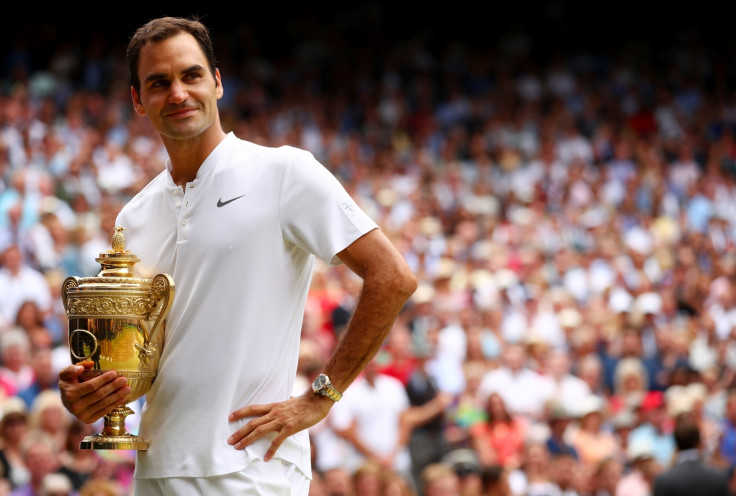Roger Federer reveals how he has changed his schedule to achieve success at 36
Federer skipped the entire clay scene in 2017 after winning the Australian Open.
Roger Federer has revealed that in order to maintain his fitness and to keep playing at the highest level at the age of 36, he decided to reduce the quantity of events he would be participating in over the course of the year. The Swiss ace skipped the entire clay scene in 2017 after winning the Australian Open and reaped the dividends as he went on to win his eighth Wimbledon title.
The 19-time Grand Slam champion started the year ranked number 17 in the world and seven titles later, he is now ranked number two, behind long-time rival Rafael Nadal, who also had a stellar year after an injury-plagued 2016 campaign.
Federer bounced back and displayed a new aggressive form of tennis, but his "fitness first" mantra is something that allowed him to be competitive in every event he entered. He played a limited schedule entering just 17 tournaments – the fewest among the current top four – but lost just five times in 57 matches.
He is expected to follow a similar course in 2018 as well in a bid to keep himself fit for the major events as, by his own admission, he cannot put in the hours like he did when he was younger.
Federer recently led Switzerland to yet another Hopman Cup victory, beating the likes of Yuichi Sugita, Karen Khachanov and Jack Sock to show impressive form while his Australian Open rivals are almost all struggling with injury. He ended the tournament with an impressive win over World No. 3 Alexander Zverev as he prepares for his title defence in Melbourne.
"When you're younger, you have to put in the hours to be able to tell yourself, 'I can stay out on a court for four hours and train for 10 days straight'," Federer said after beating Alexander Zverev 6-7, 6-0, 6-2 at the Hopman Cup in Perth, as quoted by the Express.
"You have to prove it to yourself that you can do it. It's more of a mental thing in my opinion. Of course, your game needs a lot of tennis and your game needs fitness, so that you don't get hurt so often.
"But as you grow older, it becomes a bit more quality-orientated and not so much quantity because quantity hurts the body. I've played almost 1,500 matches in my career, so you have to be careful there," he added.























